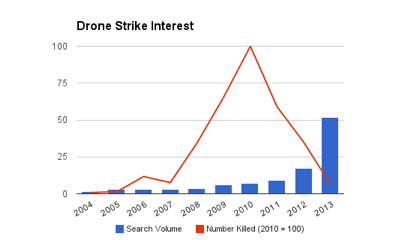
The Rios Montt trial set back a month and will now likely collapse, a sad day for international justice. But for neoconservatives, the decision is good news, because Reagan’s shady connections with Montt have been exposed (for the few willing to discover them). And yet some on the right are still trying to protect Montt and Reagan – here’s how you spin a genocide.
J. Michael Waller calls blaming the U.S. “easy propaganda.” He writes in the New York Times that,
The Rios Montt prosecution was less about justice and more about using the courts to wage political propaganda campaigns to settle old scores. Rios Montt’s real crime was not genocide, according to prevailing logic, but his political beliefs… shouldn’t former insurgents who committed war crimes in the 1980s also face justice?
We’ll hear more “blame the insurgents” arguments later, but for now, let’s take a look at how the United Nations Commission for Historical Clarification report on the atrocities. They find that U.S. backed government forces, not the rebels, committed 93 percent of the crimes.
The Washington Office of Latin America reports,
Ríos Montt has long been identified by human rights activists in Guatemala and internationally as the man in charge during the period of the most notorious human rights abuses committed during Guatemala’s civil war; massacres and targeted attacks on indigenous Mayan communities were widespread during his regime. Ríos Montt’s trial and conviction are a vindication for the victims and their families, as well as a re-assertion of the principle that indiscriminate attacks on civilian communities during wartime can never be justified.
But it was really Montt’s political views that sunk him.
In Foreign Policy, Jose Cardenas defends Reagan in a similar way, downplaying the crimes, and saying that Reagan’s “gamble” just didn’t pan out. He writes:
If someone wants to argue that the Reagan administration’s policy gamble on Ríos Montt to quell the violence did not pan out, then that’s one thing (history books are full of such examples). But to equate it with aiding and abetting “genocide” is beyond the pale. In fact, it is more evidence of an ideological agenda than any noble search for accountability.
In this retelling, we have a United States that merely supported, with the intent of quelling violence, a fascist dictator. Reagan, it’s worth noting, said of Montt:
I know that President Rios Montt is a man of great personal integrity and commitment. I know he wants to improve the quality of life for all Guatemalans and to promote social justice. My administration will do all it can to support his progressive efforts.
Let’s turn again to the most authoritative source we have on the crimes – the UN Report. Rather than fingering the U.S. as merely a financial supporter, the report argues that many of the crimes originated from U.S. doctrines. From the report:
In the case of Guatemala, military assistance was directed towards reinforcing the national intelligence apparatus and for training the officer corps in counterinsurgency techniques, key factors which had significant bearing on human rights violations during the armed confrontation.
Later on:
Anti-communism and the National Security Doctrine (DSN) formed part of the anti-Soviet strategy of the United States in Latin America. In Guatemala, these were first expressed as anti-reformist, then anti-democratic policies, culminating in criminal counterinsurgency.
From the right we have a story of the Reagan administration being entirely unaware of the abuses and seeking a means of quelling the violence. From the truth commission we get an entirely different story: U.S. National Security Doctrine actively encouraged violence.





 This insight elucidates American foreign policy. How many foolish ventures have begun in the “national defense”? From the domino theory to the Bush doctrine to drone strikes, American foreign engagements have always been cloaked under the guise of “defense.” Nietzsche’s unfair assessment is particularly appalling since he held antithetical views. He hopes for the day when,
This insight elucidates American foreign policy. How many foolish ventures have begun in the “national defense”? From the domino theory to the Bush doctrine to drone strikes, American foreign engagements have always been cloaked under the guise of “defense.” Nietzsche’s unfair assessment is particularly appalling since he held antithetical views. He hopes for the day when,
